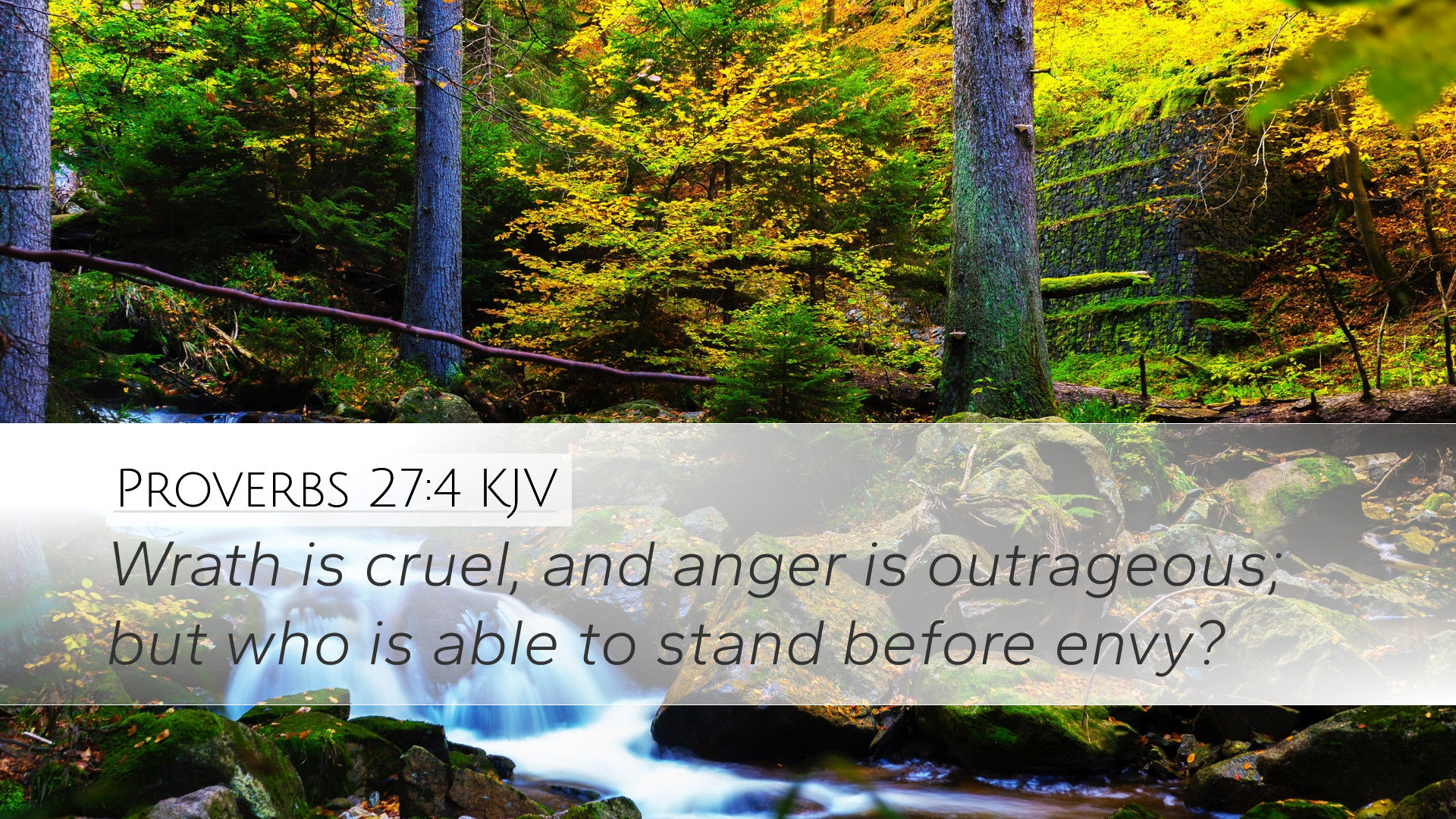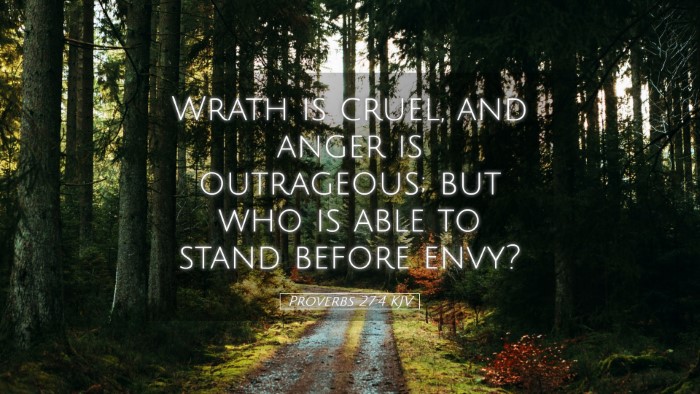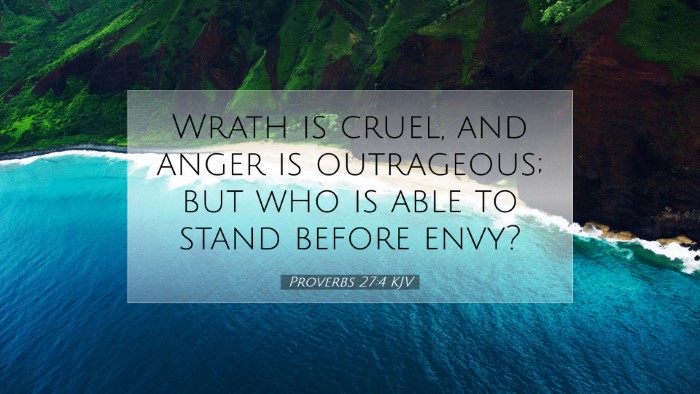Commentary on Proverbs 27:4
Proverbs 27:4 states: "Wrath is cruel, and anger is outrageous; but who is able to stand before envy?" This verse encapsulates profound wisdom about the nature of human emotions and relationships, highlighting the destructive power of envy compared to other forms of wrath and anger.
Insights from Matthew Henry
Matthew Henry, in his comprehensive commentary, begins by emphasizing the characteristics of wrath and anger. He notes:
- Wrath: It is described as a sudden outburst of fierce emotions, often leading to destructive actions.
- Anger: Though it may be a justified emotion, it too can lead to serious consequences if not managed correctly.
Henry points out that while both of these emotions can inflict harm, they are somewhat external in their expression. However, envy is depicted as a deeper and more insidious emotion that consumes the individual from within, leading to greater damage both to oneself and others.
He stresses that envy leads to bitterness and malignancy in our thoughts and actions, causing a person to act against others not merely out of affection or respect but out of jealousy and resentment.
Insights from Albert Barnes
Albert Barnes offers a rich analysis of this verse, focusing particularly on the consequences of envy. He articulates:
- The Nature of Envy: Unlike wrath and anger, which can be momentary, envy creates a lasting state of discontent that breeds continual suffering.
- The Question of Resistance: Barnes highlights that the rhetorical question "Who is able to stand before envy?" suggests the overwhelming power it holds over an individual’s soul, making it difficult to resist.
He also draws parallels between envy and other negative traits such as strife, discord, and division, indicating how envy can lead to relational breakdowns and community strife. In a relational context, envy can destroy collegiality, friendship, and even familial bonds.
Insights from Adam Clarke
Adam Clarke adds another layer of understanding by interpreting the verse through the implications of living with an envious heart. Clarke emphasizes:
- The Underlying Source of Envy: He suggests that envy often arises from a perceived lack and the comparison of oneself with others.
- Spiritual Consequences: Clarke posits that allowing envy to flourish within can hinder one’s spiritual growth and peace.
Moreover, he relates this verse to broader themes in Proverbs and scripture that emphasize the importance of contentment and the dangers of coveting others' possessions or successes, urging readers to seek fulfillment and gratitude instead.
Theological Implications
The reflections from these commentaries highlight several theological implications for pastors, students, theologians, and scholars:
- Human Nature: This verse serves as a mirror to human emotional capacities, making it pertinent in discussions on pastoral care and counseling.
- Relational Dynamics: Understanding the destructive nature of envy can help in fostering healthier relationships within churches and communities.
- Spiritual Reflection: This verse encourages self-examination regarding one's emotions and motivations, a necessary practice for spiritual growth.
Practical Applications
Applying the insights gathered from these commentaries encourages practical steps toward addressing envy:
- Encouraging Honest Conversations: Create platforms for open dialogue about feelings of envy to encourage healing and understanding.
- Promoting Contentment: Preach and teach on the virtue of contentment and the dangers of envy to foster a culture of gratitude.
- Modeling Healthy Emotions: Leaders should model healthy emotional expressions to guide others in managing their feelings effectively.
Conclusion
In conclusion, Proverbs 27:4 provides a rich resource for understanding complex human emotions. The insights from Matthew Henry, Albert Barnes, and Adam Clarke converge to reveal the profound effects of envy compared to wrath and anger. For the pastor, student, theologian, or scholar, these reflections can catalyze deeper discussions on emotion management while emphasizing the importance of fostering love, support, and contentment within communities.


